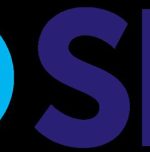How do Fixed Deposits Work?

What would you make a lump sum amount of money that you just received and will be spending after two years? You would keep it in your bank account, wouldn’t you? But what if there was a better way? Yes! There is. That is a fixed deposit. A fixed deposit, as the name says it, is a kind of deposit that can be made for a fixed period of time and earn you higher rates of interest than a savings account. It is a great way to start your investing journey, so are you ready to talk about an FD? Then, keep reading.
What is the meaning of a fixed deposit?
A fixed deposit will be offered to you by the bank, an NBFC, or the post office too. These fixed deposits will enable you with the application to open an account, deposit your money into it, earn a certain amount of interest over it, and withdraw it after the fixed tenure is over. Are you still confused? Let’s make it clear.
How Does a Fixed Deposit Work? Explained
A fixed deposit is offered by different financial institutions, and you can check them out when you decide on investing in an FD. When these financial institutions offer these fixed deposits, they offer them with a set interest rate that the account holder will earn from the investment.
You can choose a tenure anywhere from 7 days to 10 years as offered by the banks. For the tenure you choose, you can see the rate of interest set.
This rate of interest will never be affected by the outside market or change with time. This means the interest that you earn through it will always be secured and fixed.
You can withdraw your money with interest from the account when the tenure is over, or you can choose to continue by extending the tenure as you please.
So, one thing is for sure; if you are planning on choosing an NBFC to open an FD account, you will have to check the interest rates offered by all the NBFCs and choose the best. The same will also stand for the other options, such as FD rates provided by Cooperative banks, FD rates of the post office, and much more.
Pros and Cons of a Fixed Deposit
As every coin has two sides – so does a fixed deposit have two sides; there are a lot of advantages but also some disadvantages. Let’s talk about them over here.
The Pros of a Fixed Deposit
Here are some pros of a fixed deposit that will come in handy when you are thinking about investing in one:
a) It is one of the safest investments
A fixed deposit is one of the safest investments because there is no market volatility involved in it, and it can be an option even for people who do not have a risk appetite at all. It can be a useful tool to start off with for your financial journey, and you know your money will be safe, and you will receive the wholesome amount without fail.
b) It can be easily customized
A fixed deposit is a choice that can bend to your needs. This means you have a wide range to choose from, and you can also choose the period that you want to invest in and how much you want to invest. Though there would be a lower limit and a maximum limit to the amount that you can invest, it is not like buying a stock only for a particular price or buying gold for the price that it is. It is much more flexible than that.
c) It can play as a collateral
Yes, it can be collateral for your loan amount. You can apply for a loan from banks up to 90% of the FD amount, and the FD will play as collateral to that loan. This is an easy way for you to get instant cash, pay off the loan, and never have to break off the fixed deposit.
d) You can also save taxes through the fixed deposit
Under Section 80C (The investor’s favorite section under the Income-tax act), you can also claim up to 1.5 lakh rupees as a deduction. Your investment will qualify as a tax-deductible under the section if it is tax-saving FD. This will also bring down your tax outgo.
e) It is only a one-time effort
You would not have to work a lot for the fixed deposit, you will only have to do the job of finding the perfect bank or NBFC, and then you can move on to just investing your money there. After you invest the money, the money will be working for you, and it will not be the other way around.
f) It is an insured saving approach
The deposit insurance and credit guarantee corp is a subsidiary of the reserve bank of India, and your deposit will be insured, even in the case of a financial crisis.
g) An fixed deposit will always encourage more saving
When your money is just held in a savings account, there would be little to no chance that you will be saving up that money. You will be tempted to spend that money since it can easily be liquidated.
Cons of the Fixed Deposit
A fixed deposit will also have its share of downsides, and only if you are ready for it can you start investing in it:
a) It cannot be easily liquidated
Just like the money in a savings account, you would not be able to liquidate the money. If you are breaking the fixed deposit, you will have to pay the institution a sum of penalty from your money.
b) You will have to be tied in it for a fixed period
The fixed deposit means a specific amount of time during which you will not be able to withdraw the money at all.
Conclusion
The bottom line is that the pros outweigh the cons, and this means it is a good investment option for someone who is not willing to take any financial risks.
Image by Nattanan Kanchanaprat from Pixabay
Image Reference: Pixabay









Leave a Reply